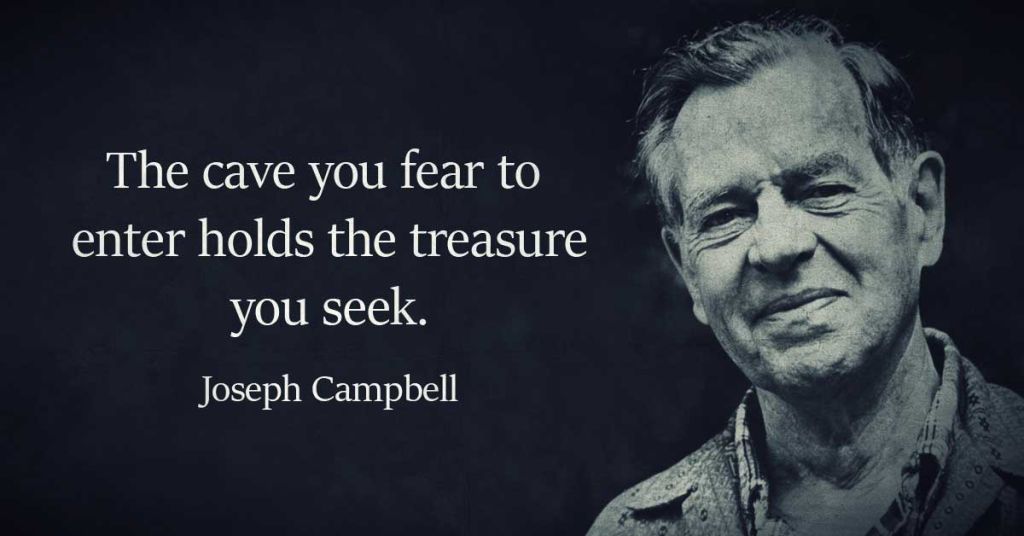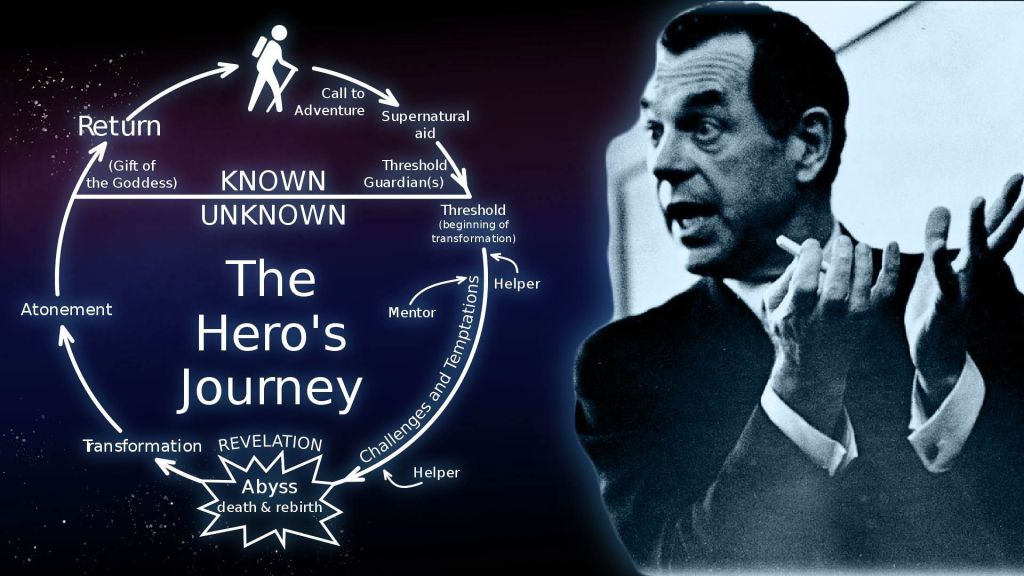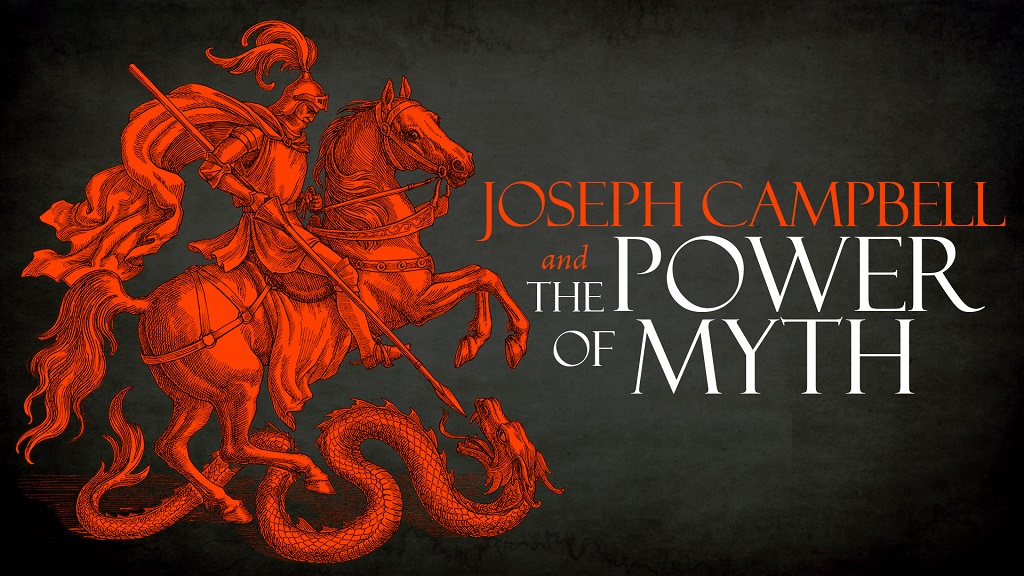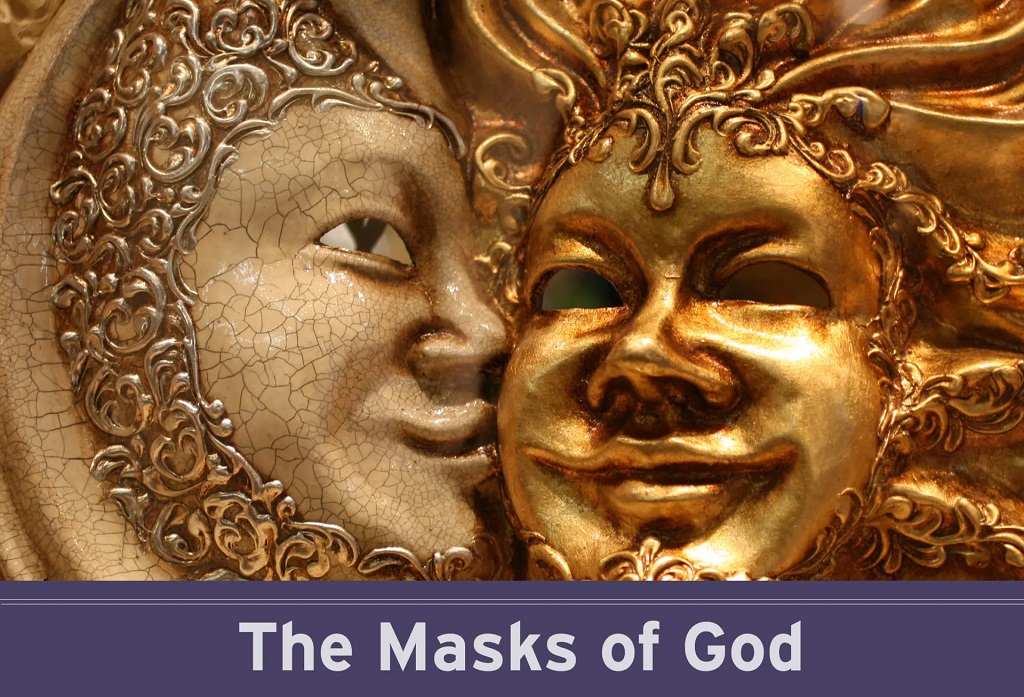
Joseph Campbell was one of the 20th century’s most influential and renowned scholars of comparative mythology and religion. Through his prolific writings and captivating lectures, Campbell shared his insights into the universal patterns and archetypes that underlie the myths, folktales, and spiritual traditions of cultures across the world and throughout history.
Campbell’s central thesis was that despite the vast diversity of human mythologies, all stories of the hero’s journey, the creation of the world, and the triumph of good over evil share a common structure and set of themes. By identifying these unifying motifs, Campbell aimed to reveal the deep psychological, philosophical, and spiritual truths embedded in the world’s sacred stories.
Campbell’s landmark works include the four-volume historical study The Masks of God, the best-selling book The Hero with a Thousand Faces, and the influential book and television series The Power of Myth, which explored the mythological underpinnings of the human experience. Through these works, Campbell demonstrated how the universal patterns of myth could illumine the essential nature of the human condition.
The Hero’s Journey

At the heart of Campbell’s thought is the concept of the “monomyth” or the hero’s journey – the archetypal story found in myths, legends, and folktales across the globe. In The Hero with a Thousand Faces, Campbell outlines the common elements of this heroic narrative:
- The call to adventure: The story begins with the hero receiving a call to embark on an extraordinary quest, whether it is to slay a monster, retrieve a magical treasure, or venture into the unknown.
- The road of trials: The hero then crosses the threshold into a supernatural world, facing a series of challenges, temptations, and battles along the way. These trials test the hero’s courage, wisdom, and spiritual resolve.
- The ultimate boon: After overcoming these obstacles, the hero attains the ultimate boon, treasure, or revelation that was the goal of the quest. This boon may be a physical object, a transformative insight, or the restoration of balance to the world.
- The return: The final stage is the hero’s return to the ordinary world, sharing the boon or wisdom gained on the journey and restoring harmony to the community.
Throughout history and across cultures, Campbell found this basic narrative structure underlying the world’s most enduring myths and legends – from the odyssey of Odysseus to the passion of Christ to the journey of the Buddha. For Campbell, the hero’s journey represents the fundamental pattern of human spiritual transformation and the universal stages of psychological maturation.
The Power of Myth

In the 1980s, Campbell’s ideas gained widespread public attention through his acclaimed television interviews with journalist Bill Moyers, which were later published as the book The Power of Myth. In these conversations, Campbell explored how the themes and symbols of myth continue to resonate in modern life, shedding light on the human need for meaning, ritual, and transcendence.
One of Campbell’s central arguments was that myth is not simply a collection of fantastical stories from the past, but a vital wellspring of sacred meaning that nourishes the human spirit. Myths, he argued, are not lies or fables, but rather “other windows on the same ultimate reality” – they are metaphorical rather than literal truths that point to the deepest mysteries of existence.
Through myths, Campbell believed, we come to understand the universal human experience – the cycle of birth, death, and rebirth; the struggle between good and evil; the longing for the divine. Myths, he said, are “the secret opening through which the inexhaustible energies of the cosmos pour into human cultural manifestation.”
For Campbell, the study of myth was not merely an academic exercise, but a way of apprehending the sacred and transformative dimensions of the human journey. He saw the hero’s journey as a universal metaphor for the psychological and spiritual development of the individual, as well as for the collective transformation of human civilization.
Myths, he believed, have the power to awaken the “inward eye” and reveal the extraordinary within the ordinary. By embracing the mythic imagination, we can tap into the wellsprings of creativity, empathy, and transcendence that lie at the heart of the human experience.
The Masks of God

While The Hero with a Thousand Faces and The Power of Myth are Campbell’s most well-known works, his magnum opus is the four-volume historical study The Masks of God. In this sweeping examination of world mythologies, Campbell traces the evolution of religious and spiritual thought across the globe, from the ancient shamanic traditions of preliterate societies to the sophisticated philosophical systems of the world’s great civilizations.
The Masks of God explores four major cultural spheres – Primitive Mythology, Oriental Mythology, Occidental Mythology, and Creative Mythology – revealing the common threads and divergent paths of human mythic imagination. Through this vast comparative analysis, Campbell sought to uncover the universal patterns that unite the world’s religious and spiritual traditions, as well as the unique cultural influences that have shaped distinct mythological worldviews.
In Primitive Mythology, for example, Campbell examines the shamanic practices and nature-based spirituality of indigenous cultures, showing how their myths and rituals reflect a deep connection to the cycles of the natural world. In Oriental Mythology, he delves into the philosophical complexity of Hinduism, Buddhism, and Taoism, illuminating their shared emphasis on the transcendence of the individual ego.
In Occidental Mythology, Campbell explores the monotheistic faiths of the West – Judaism, Christianity, and Islam – tracing how their mythic narratives have been shaped by the historical and cultural factors of the Middle Eastern and Mediterranean worlds. Finally, in Creative Mythology, he examines how the mythic imagination has continued to evolve in the modern era, finding new expressions in art, literature, and popular culture.
Throughout this sweeping work, Campbell demonstrates the remarkable unity underlying the world’s sacred stories, while also highlighting the rich diversity of mythic expression. His goal was not to reduce all myths to a single universal formula, but rather to reveal the deep commonalities that point to the shared spiritual and psychological needs of the human species.
Influences and Legacy
Joseph Campbell’s work drew on a wide range of intellectual influences, from the depth psychology of Sigmund Freud and Carl Jung to the comparative religion scholarship of Mircea Eliade and the literary criticism of James Joyce. He was particularly inspired by Jung’s concept of the “collective unconscious” – the idea that the human mind contains universal archetypes and symbolic motifs that transcend individual and cultural boundaries.
Campbell also drew extensively from the pioneering work of anthropologists like Franz Boas, who emphasized the importance of understanding myths and folktales within their specific cultural contexts. At the same time, Campbell sought to identify the universal patterns that unite the world’s sacred stories, influenced by the cross-cultural comparative approach of scholars like Sir James Frazer and Ananda Coomaraswamy.
The impact of Campbell’s work has been profound and wide-ranging. His writings have influenced countless scholars, artists, and spiritual seekers, inspiring new ways of understanding the role of myth in human culture and psychology. The hero’s journey, in particular, has become a ubiquitous narrative structure in film, literature, and other media, shaping the storytelling of generations.
Beyond academia, Campbell’s ideas have also profoundly influenced fields as diverse as depth psychology, comparative religion, and the study of heroic archetypes in popular culture. His emphasis on the transformative power of myth has resonated with those seeking meaning, purpose, and spiritual growth in the modern world.
Today, Campbell’s legacy continues to inspire new generations of thinkers, artists, and seekers. His work remains an invaluable resource for understanding the deep wellsprings of human imagination, creativity, and the search for the sacred. Through his exploration of the world’s myths and legends, Campbell revealed the universal language of the human soul – a language that continues to echo in the stories we tell and the journeys we undertake.




1 Comment
günlük kiralık daireler
Your blog is a treasure trove of valuable insights and thought-provoking commentary. Your dedication to your craft is evident in every word you write. Keep up the fantastic work!